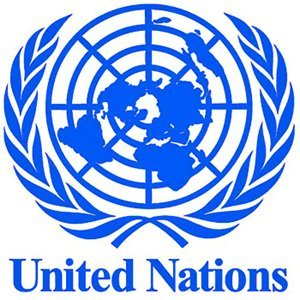Nuclear Weapons 238 - Japan's Hypocrisy On UN Resolution To Ban All Nuclear Weapons - Part One of Two Parts
Part One of Two Parts
The U.S. has over seventy three hundred nuclear warheads in its arsenal and the ability to deliver them to any target on the globe. Russia has eight thousand warheads and sophisticated delivery systems. The UK has over two hundred nuclear warheads, France has three hundred and China has two hundred and fifty. India, Pakistan and Israel have around a hundred warheads each. North Korea is thought to have about eight nuclear bombs and is working on miniaturization so they can be delivered by North Korean missiles.
Scientists believe that the detonation of as few as one hundred nuclear warheads anywhere in the world could bring about a nuclear winter which would mean the end of human civilization. Billions of people would die during and after the war from radiation, starvation and disease. Nuclear arms reduction treaties have reduced the number of nuclear weapons from tens of thousands during the Cold War to thousand today but the U.S. and Russia still have many times the number of warheads needed to end our world. Six other countries have enough warhead to accomplish the task.
Only nine out of the one hundred and ninety three members of the United Nations have nuclear weapons. Most of the rest of the members would like to see all nuclear weapons banished from the Earth and many UN resolutions have been passed over the years calling for a total global ban on nuclear weapons.
I have blogged before about the new UN resolution that proposes a ban on all nuclear weapons. On October 27, the First Committee of the UN adopted the resolution which commits the member nations of the UN to start negotiating in March of 2017 for a complete global ban on nuclear weapons. One hundred and twenty three nations voted in favor of the resolution, thirty eight nations voted against it and sixteen nations abstained. Five countries with nuclear weapons, the U.S., Russia, Britain, France and Israel, voted against the resolution. In addition, U.S. allies including Japan, South Korea, Germany and Australia voted no. China, India and Pakistan which have nuclear weapons abstained. North Korea voted in favor of the resolution. Austria, Brazil, Ireland, Mexico, Nigeria and South Africa were instrumental in drafting the resolution and fifty seven nations co-sponsored it.
It is understandable that some nations with nuclear weapons would be loath to abandon them after the billions of dollars and decades invested in obtaining them. They may also feel that they could not trust enemies or potential enemies with nuclear weapons to abide by the new treaty and get rid of all their nuclear weapons. On the other hand, some nations with nuclear weapons may be ready to abandon them if they are confident that their enemies will also get rid of their nuclear weapons.
The new resolution will be put to a vote in December with negotiations to start in March. It is unlikely that the negotiations will result in the elimination of nuclear weapons in the nations voting against the resolution, at least in the near future. It is hoped that having a UN framework for a global ban will eventually lead to a decrease and even a total elimination of nuclear weapons some day.
Please read Part Two.
